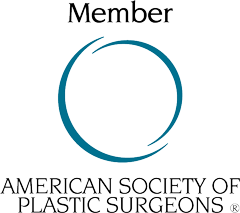
(originally published April 28, 2009)
There are rumblings that the FDA wants to classify all stem cells as “drugs.” This is a BAD idea that shows how bureaucratic bungling can impede medical advances. ‘Drug’ classifications would delay therapy and treatment for years.
A blanket regulatory approach is wrongheaded because there are different classes of stem cells, and different ways of delivering them. Not all stem cells are equal. Some can produce any cell type (totipotent stem cells), some produce only one type of cell. The risk profiles are very different.
A progenitor stem cell can only produce a differentiated cell. It cannot divide and produce another progenitor cell. It is not really a stem cell, it is already committed on a path of differentiation and can only produce a limited number of cell types and cell divisions.
A germ cell lineage stem cell is not committed to a differentiated path. In other words, it can also divide to create another germ cell lineage stem cell. Thus, theoretically, it has an unlimited division potential. But it is limited to only one kind of cell lineage. These cell lines are : ectoderm (skin, nerve tissues), mesoderm (muscles, bones, and connective tissues), and endoderm (digestive tract and internal organs).
A pluripotent stem cell can divide into any of the major cell lineage types. However, it cannot produce gametes (sperm or ovum cell). Interestingly enough, fat derived stem cells appear to be pluripotent. In the laboratory, they have been induced to differentiate into ectodermal, and endodermal cell lines, beside its presumed mesodermal potential. These pluripotent stem cells are also referred to as adult stem cells.
A totipotent stem cell can divide into any cell type, including gametes. An embryonic stem cell is a totipotent cell.

Recently, new methods have been developed to turn differentiated skin cells into pluripotent cells. These cells are genetically manipulated by either introducing certain protein signals into the cell or having a virus inject a small piece of genetic code that unlocks the cells ability to differentiated into different cell lines. Pluripotent fat cells do not need manipulation to convert to stem cells.
Stem cells can be frozen and stored, or cultured in a laboratory environment to increase the numbers of cells available for therapy.
As you can see, the term stem cell covers at least 5 different scenarios
- Already existing progenitor cells which will differentiate in a very predictable path.
- Already existing and abundant pluripotent cells (fat stem cells) which can differentiate into any cell line.
- Embryonic stem cells which are foreign to the patient.
- Cultured cells that belong to the patient and have been placed in culture media and grown in laboratory, not real living body conditions.
- Genetically manipulated skin cells that may or may not belong to the patient.
The first two types of cells (progenitor and pluripotent) can be obtained easily in the operating room. Fat stem cells can be extracted and concentrated with straightforward methods in the operating room to deliver a potent dose of your own cells where they are needed. The cells obtained from your own fat are not manipulated or cultured, and they are injected in the same operative session. Why should you be prevented from accessing your own tissues? Plastic surgeons will routinely cut a piece of tissue off from the body and reconnected again to a problem area to make it heal. These are called free flaps. Are flaps considered drugs ? Are skin grafts drugs too? The answer is no, because they are your own tissue and fat. Your own skin graphs and free flaps are not regulated as drugs. Your own fat derived stems cells should get the same FDA treatment .
There is a group of physicians that is trying to develop laboratory protocols for stored and cultured stem cells, modeled after protocols established by Fertility Clinics. The name of the organization is ASCTA, American Stem Cell Therapy Association, and they deserve our support.
The implications of an FDA regulatory overreach to classify all stem cells as drugs are ridiculous. You would be restricted from using your own cells. For over a decade, plastic surgeons have been using fat that has been processed in a centrifuge for 3 minutes. This is known as a fat graft. However, if we process that same fat for 10 minutes into stem cells, does that now make it a ‘drug’? I think not. Your own fat cells are not ‘drugs’.
(Originally published April 28, 2009)



